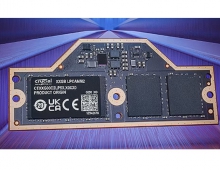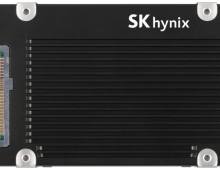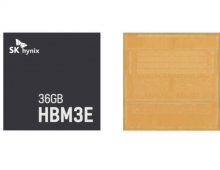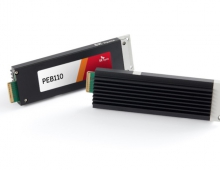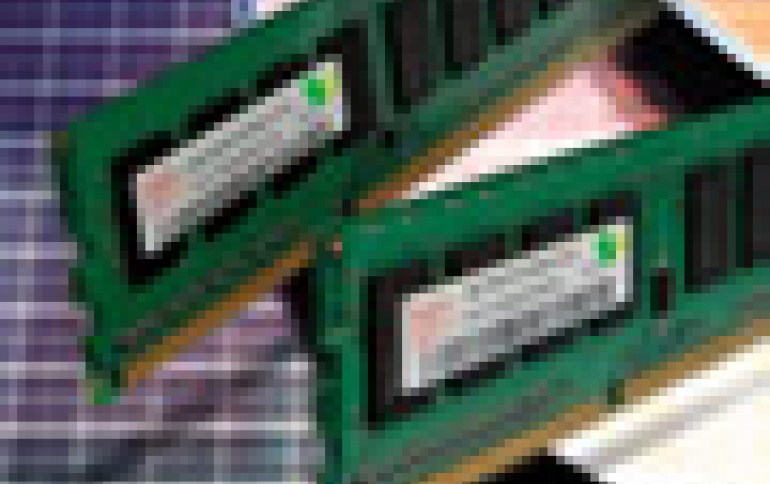
Rambus Loses Price Fixing Case Against Hynix and Micron
Technology licensing company Rambus Inc. today announced the jury in its anti-trust case against Hynix Semiconductor and Micron Technology has found in favor of the defendants.
The jury found that Rambus did not meet its burden of proving its case against the two defendants. At issue were Rambus allegations that the defendants illegally conspired to constrain availability of Rambus' RDRAM and keep its prices unnaturally high relative to its competition, while holding competitive DDR pricing low, in an effort to eliminate Rambus' RDRAM memory technology from the marketplace.
Micron and Hynix countered that Rambus's chip technology was plagued by technical problems and that the company blames competitors for its own failure.
"We are disappointed with this verdict as we believe strongly in our case. We thank our legal team and everyone who has supported Rambus in this case over the past seven years. We do not agree with several rulings that affected how this case was presented to the jury and we are reviewing our options for appeal," said Harold Hughes, president and chief executive officer of Rambus. "Regardless of this outcome, we remain steadfastly committed to innovation as Rambus engineers and scientists continue to advance the frontiers of technology for the benefit of our customers and consumers worldwide."
"We are very pleased that the jury considered all the evidence at issue in this case and determined that Rambus' allegations against the Company were completely without merit," said Steve Appleton, Micron's Chairman and Chief Executive Officer. "The jury's verdict validates our assertion that Micron acted in accordance with the law and consistent with its values of innovation and fair competition in the marketplace."
"We welcome the jury's decision," Hynix Chief Executive Kwon Oh-Chul said in a statement. "The ruling drastically reduces uncertainties hanging over the company's future."
Thie case was originally filed on May 5, 2004 in the Superior Court of the State of California. In the suit, Rambus charged that the defendants engaged in a "concerted and unlawful" effort to eliminate competition and stifle innovation in the market by collectively rigging DRAM prices to drive Rambus' RDRAM memory technology from the market.
Rambus asserted its claims under certain causes of action, including conspiracy to restrict output and fix prices in violation of the Cartwright Act and intentional interference with prospective economic advantage. The claim of the defendants engaging in unfair competition in violation of California Business and Professions Code Section 17200 remains to be decided by the judge. Rambus previously dismissed without prejudice a claim of conspiracy to monopolize in violation of the Cartwright Act.
Rambus was awarded no damages.
Micron and Hynix countered that Rambus's chip technology was plagued by technical problems and that the company blames competitors for its own failure.
"We are disappointed with this verdict as we believe strongly in our case. We thank our legal team and everyone who has supported Rambus in this case over the past seven years. We do not agree with several rulings that affected how this case was presented to the jury and we are reviewing our options for appeal," said Harold Hughes, president and chief executive officer of Rambus. "Regardless of this outcome, we remain steadfastly committed to innovation as Rambus engineers and scientists continue to advance the frontiers of technology for the benefit of our customers and consumers worldwide."
"We are very pleased that the jury considered all the evidence at issue in this case and determined that Rambus' allegations against the Company were completely without merit," said Steve Appleton, Micron's Chairman and Chief Executive Officer. "The jury's verdict validates our assertion that Micron acted in accordance with the law and consistent with its values of innovation and fair competition in the marketplace."
"We welcome the jury's decision," Hynix Chief Executive Kwon Oh-Chul said in a statement. "The ruling drastically reduces uncertainties hanging over the company's future."
Thie case was originally filed on May 5, 2004 in the Superior Court of the State of California. In the suit, Rambus charged that the defendants engaged in a "concerted and unlawful" effort to eliminate competition and stifle innovation in the market by collectively rigging DRAM prices to drive Rambus' RDRAM memory technology from the market.
Rambus asserted its claims under certain causes of action, including conspiracy to restrict output and fix prices in violation of the Cartwright Act and intentional interference with prospective economic advantage. The claim of the defendants engaging in unfair competition in violation of California Business and Professions Code Section 17200 remains to be decided by the judge. Rambus previously dismissed without prejudice a claim of conspiracy to monopolize in violation of the Cartwright Act.
Rambus was awarded no damages.




